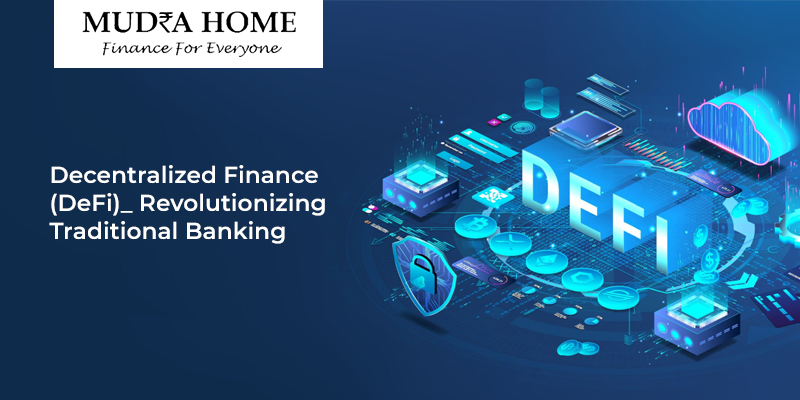
In a world where innovation is the driving force behind every industry, the financial sector is no exception. The rise of Decentralized Finance (DeFi) is reshaping the way we perceive and interact with traditional banking systems. DeFi is not just a buzzword; it’s a transformative movement that is democratizing finance, offering greater accessibility, transparency, and autonomy to individuals across the globe.
Decentralized Finance, or DeFi, refers to a novel financial ecosystem built on blockchain technology. Unlike traditional banking that relies on centralized intermediaries like banks and financial institutions, DeFi operates on decentralized platforms that utilize smart contracts. These smart contracts are self-executing contracts with the terms of the agreement directly written into code, eliminating the need for intermediaries.
One of the most striking aspects of DeFi is its ability to eliminate geographical and economic barriers. Traditional banking services often exclude individuals from underprivileged backgrounds or in regions with limited access to financial infrastructure. DeFi projects can be accessed by anyone with an internet connection, enabling people to participate in financial activities such as lending, borrowing, trading, and investing without the need for a traditional bank account.
DeFi platforms have revolutionized lending and borrowing. Traditional banks determine interest rates based on a borrower’s creditworthiness and other factors. In contrast, DeFi lending protocols use algorithms to set interest rates, making the process more transparent and equitable. Users can lend their cryptocurrencies and earn interest, while borrowers can secure loans without the hassle of complex paperwork and long waiting periods.
Trading and investing in traditional markets often involve intermediaries, high fees, and limited trading hours. DeFi changes the game by enabling peer-to-peer trading of digital assets 24/7. Automated market makers (AMMs) and decentralized exchanges (DEXs) allow users to swap tokens directly from their wallets, reducing the reliance on centralized exchanges and cutting down on fees.
While DeFi brings tremendous promise, it’s not without its challenges. The decentralized nature of DeFi platforms can make them vulnerable to hacks and security breaches. Regulatory uncertainties also loom over the DeFi landscape, with governments and regulators worldwide grappling to define their stance on this new paradigm. The fast-paced innovation in DeFi can lead to the rapid introduction of complex financial products, raising concerns about investor protection and financial literacy.
The DeFi revolution is still in its early stages, and the community is actively working on addressing its challenges. Security protocols and auditing practices are being refined to enhance the resilience of DeFi platforms against potential threats. Moreover, collaboration between the DeFi space and traditional financial institutions could bridge the gap between the old and the new, fostering an environment where the strengths of both systems are leveraged.
Decentralized Finance is not merely a buzzword but a radical reimagining of the financial landscape. By leveraging blockchain technology and smart contracts, DeFi has the potential to democratize financial services, making them accessible to a global audience and removing barriers that have traditionally excluded marginalized communities. While challenges remain, including security concerns and regulatory hurdles, the momentum behind DeFi continues to grow, propelled by a community dedicated to realizing its potential.
As we move forward, it’s important for stakeholders in both the traditional financial sector and the DeFi space to engage in constructive dialogue. Collaboration, regulation, and innovation can together pave the way for a financial ecosystem that combines the best of both worlds, ultimately benefiting individuals seeking transparency, autonomy, and equal access to financial opportunities. The DeFi revolution is underway, and its impact on traditional banking is undeniable – a transformation that has the power to shape the future of finance for generations to come.